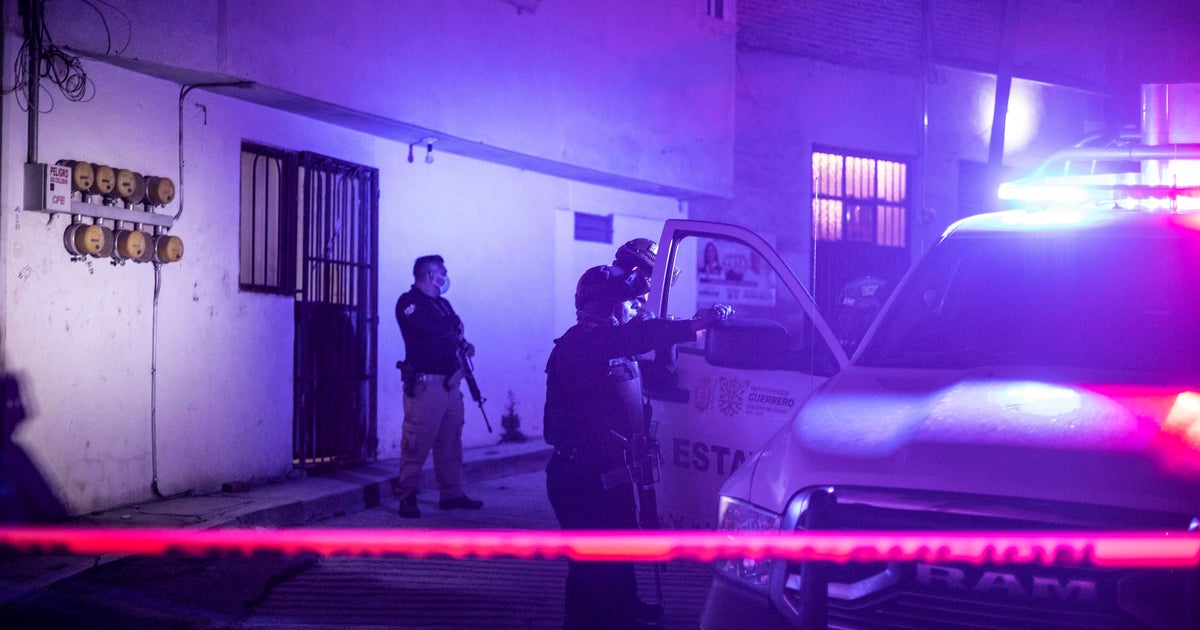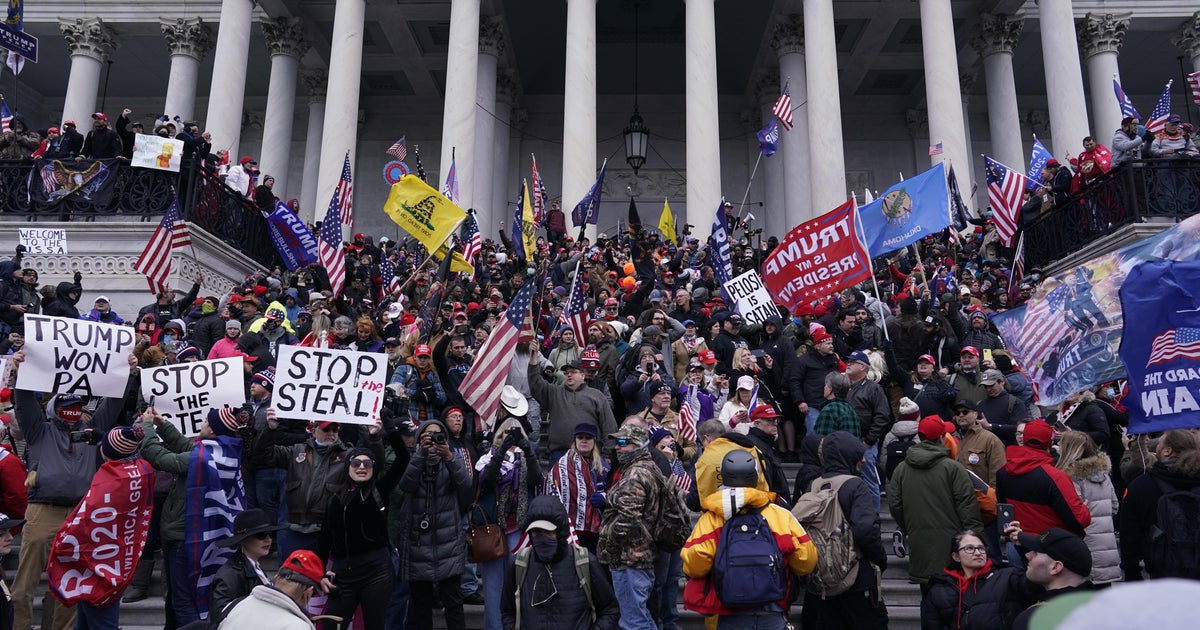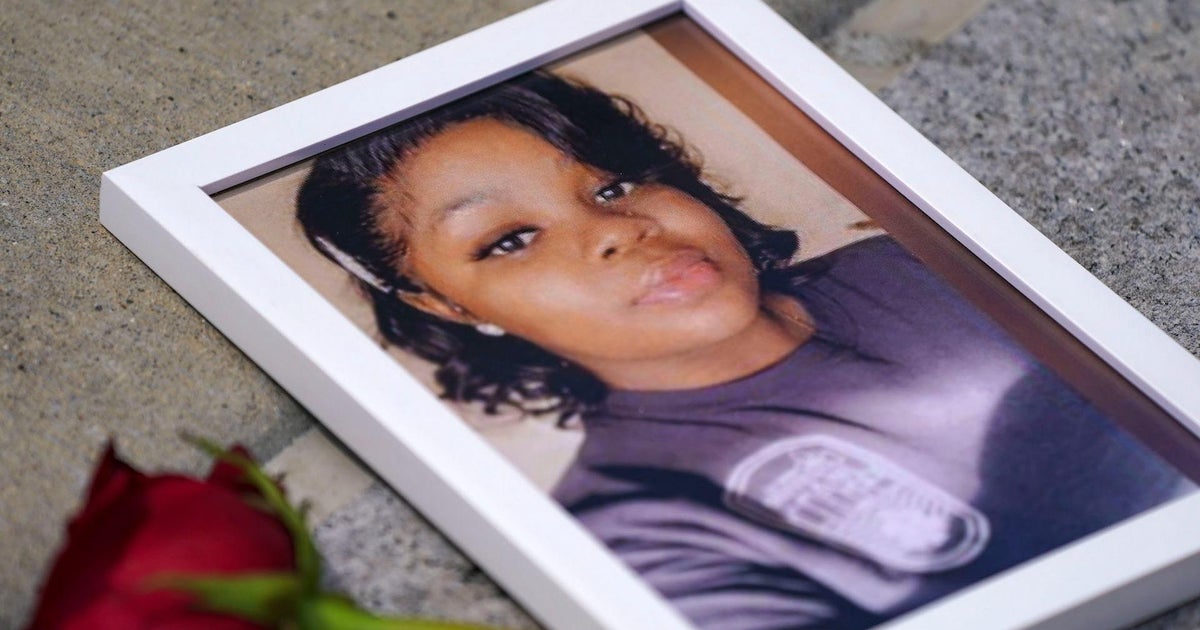CBS News
Mayor reportedly beheaded days after taking office in Mexico amid surge in cartel violence

The mayor of a city in southern Mexico has been murdered less than a week after taking office, authorities said Sunday, the latest in a series of attacks on politicians in the violence-plagued Latin American country.
The killing of Chilpancingo mayor Alejandro Arcos “fills us with indignation,” Guerrero state governor Evelyn Salgado wrote on social media, without providing further details of the circumstances.
Local media reported that Arcos was decapitated, but there has been no official confirmation.
Reuters reported that photos circulating on WhatsApp showed a severed head on top of what appeared to be Arcos’ vehicle, but the news agency could not independently verify the photos’ authenticity.
JESUS GUERRERO/AFP via Getty Images
Arcos was elected in June representing an opposition coalition that included the Institutional Revolutionary Party (PRI), which denounced his killing as a “cowardly crime” and called for justice.
“Enough of violence and impunity! The people of Guerrero do not deserve to live in fear,” it said on X.
His murder came days after the killing of another city official, Francisco Tapia, according to PRI president Alejandro Moreno.
“They had been in office for less than a week. Young and honest officials who sought progress for their community,” Moreno said on X.
Guerrero, one of Mexico’s poorest states, has endured years of violence linked to turf wars between cartels fighting for control of drug production and trafficking.
Last year, 1,890 murders were recorded in the state, which is home to the beachside resort city of Acapulco, a former playground of the rich and famous now blighted by crime. Guerrero is among six states in Mexico that the U.S. State Department advises Americans to completely avoid, citing crime and violence.
Across Mexico, more than 450,000 people have been killed and tens of thousands have gone missing in a spiral of violence since the government deployed the army to combat drug trafficking in 2006.
Politicians, particularly at the local level, frequently fall victim to bloodshed connected to corruption and the multibillion-dollar drugs trade.
Tackling the cartel violence that makes murder and kidnapping a daily occurrence in Mexico is among the major challenges facing Claudia Sheinbaum, Mexico’s first woman president.
Sheinbaum, the former mayor of Mexico City who was sworn in on October 1, has pledged to stick to her predecessor Andres Manuel Lopez Obrador’s “hugs not bullets” strategy of using social policy to tackle crime at its roots.
She is due to unveil her security plan on Tuesday.
At least 24 politicians were murdered during a particularly violent electoral process leading up to the June election that the key ruling party figure won by a landslide, according to official figures.
In June, at least three politicians in Guerrero were killed. Acacio Flores, who represents Malinaltepec, was killed just days after the killing of Salvador Villalba Flores, another mayor from Guerrero state elected in June 2 polls. Earlier in the month, a local councilwoman was gunned down as she was leaving her home in Guerrero.
Her murder came a few days after the mayor of a town in western Mexico and her bodyguard were killed outside of a gym, just hours after Sheinbaum won the presidency.
CBS News
FBI leadership said “basic step” was missed ahead of Jan. 6 Capitol breach, watchdog report reveals

A new report by the Justice Department inspector general found that the FBI failed to commission the dozens of FBI field offices across the country to gather information from its own confidential human sources ahead of the breach of the U.S. Capitol on Jan. 6, despite telling Congress that it had done so.
Had the FBI’s field office canvassed those sources, it “could have helped the FBI and its law enforcement partners with their preparations in advance of January 6,” the report said.
FBI Deputy Director Paul Abbate told investigators that not canvassing the nation for further information was the “basic step that was missed.”
The inspector general determined the FBI’s inaccurate reporting to Congress about the lack of field office coordination was not intentional.
“Our review of documented CHS reporting in FBI field offices as of January 6 did not identify any potentially critical intelligence related to a possible attack on the Capitol on January 6 that had not been provided to law enforcement stakeholders prior to January 6,” the inspector general said.
More than two dozen individuals utilized by the FBI as confidential human sources were in Washington, D.C., on Jan. 6, 2021, ahead of the Capitol breach, but none were authorized by their handlers to illegally enter the Capitol building or join the riot that day, the inspector general’s report said.
No undercover FBI agents or employees were found to have attended the Jan. 6 protests or taken part in the attack, the report said.
The findings, released Thursday, revealed that federal investigators tasked just three of the 26 FBI sources in the city that day to gather information for domestic terrorism cases, and the remaining individuals were not directed to be there. In all, four confidential human sources entered the Capitol building during the riot and 11 were on restricted Capitol grounds.
According to the Justice Department, confidential human sources are those “believed to be providing useful and credible information to the FBI and whose identity, information, or relationship with the FBI warrants confidential handling.” Federal investigators conventionally utilize these individuals to report on members of criminal organizations and provide information that would be difficult to obtain otherwise. The use of confidential human sources around the time of the Jan. 6 Capitol breach has been a point of contention on Capitol Hill, and outgoing FBI Director Christopher Wray has faced questions from Republican lawmakers about the practice.
In the days after the riot, questions surfaced about the intelligence gathered ahead of the attack and whether it was properly acted upon by federal investigators. Justice Department Inspector General Michael Horowitz found that the FBI correctly identified a potential for violence as Congress was set to certify the results of Joe Biden’s 2020 victory over Donald Trump and took appropriate steps in preparation. The U.S. Capitol Police — not the FBI — led law enforcement efforts to protect the Electoral College certification that day, while other agencies provided support.
On the eve of the riot, the FBI’s field office in Norfolk, Virginia, issued a raw intelligence report warning of an anonymous social media thread threatening violence at the Capitol, CBS News previously reported. But, according to Capitol Police officials, that information was never shared with their agency. The FBI has defended its handling of the intelligence.
“Many of these 26 confidential human sources had provided information relevant to the January 6 Electoral Certification before the event and…a few CHSs also provided information about the riot as it occurred,” Horowitz wrote. The report revealed some sources were in contact or traveling with members of extremist groups like the Proud Boys and Oath Keepers, organizations whose leadership has since been convicted at trial of seditious conspiracy as a result of the attack.
In response to the report, the FBI said it disagreed with “certain factual assertions…regarding the manner of specific steps, and the scope of the canvass undertaken by the FBI in advance of January 6, 2021.”
After the Capitol breach, the FBI launched one of the largest federal probes in American history, and prosecutors have since charged more than 1,500 defendants with crimes ranging from illegal entry into the Capitol building to assaulting police and seditious conspiracy.
Nearly 1,000 of those charged have entered into plea deals with the Justice Department and admitted guilt. Another 200 have been convicted at trial before a judge or jury.
Notably, the inspector general’s report revealed that none of the FBI’s confidential human sources who entered the Capitol or restricted grounds that day were among the hundreds criminally charged for doing so.
In response to the report’s findings, the U.S. attorney’s office in Washington, D.C., which has spearheaded the Capitol breach investigation, said, “The D.C. U.S. Attorney’s Office generally has not charged those individuals whose only crime on January 6, 2021 was to enter the restricted grounds surrounding the Capitol, which has resulted in the Office declining to charge hundreds of individuals; and we have treated the CHSs consistent with this approach.”
Despite President-elect Donald Trump’s pledge to issue pardons for some of the defendants, federal prosecutors have continued to charge individuals for alleged crimes tied to the Capitol attack in the weeks after the 2024 presidential election.
Some defendants and their legal teams have pushed for early release from prison or a pause in their proceedings ahead of Trump’s inauguration. Federal judges overseeing the cases have mostly denied those requests. Advocates on behalf of the defendants have urged Trump to issue pardons.
“I’m going to be acting very quickly,” Trump said earlier this week in an interview with NBC News. Trump has tapped former Florida Attorney General Pam Bondi as his nominee to lead the Justice Department. She and other department officials could be involved in the legal processes involved with any pardon decisions.
CBS News
Justice Dept. reaches deal with Louisville to reform police force after Breonna Taylor shooting

Watch CBS News
Be the first to know
Get browser notifications for breaking news, live events, and exclusive reporting.
CBS News
Julia Child, Tina Tuner highlight all-female 18th class of the California Hall of Fame

The next members of the California Hall of Fame have been announced – and this time, all of the inductees are women.
California Gov. Gavin Newsom and First Partner Jennifer Siebel Newsom announced the 18th class inductees on Thursday.
TV cooking legend Julia Child, California’s first poet laureate Ina Donna Coolbrith, Olympian Vicki Manalo Draves, civil rights pioneer Mitsuye Endo, civil rights activist Alice Piper, gorilla conservationist Dian Fossey, and singer Tina Turner will be honored.
“These trailblazing women have shattered barriers, challenged societal norms, and driven progress that has transformed California and the world,” Siebel Newsom said in a statement.
Unlike in previous years, all of the inductees have since passed.
“This all-female cohort consists of powerful women who remain beloved cultural icons and civil rights luminaries today, truly embodying the California spirit,” Gov. Newsom said in a statement.
Last year’s inductees included former San Francisco Mayor Willie Brown, former Secretary of Defense Leon Panetta, Judge Thelton Henderson, Chef Helene An, basketball star Cheryll Miller, choreographer Brenda Way, father of the internet Vint Cerf, and director Ava Duvernay.
The 2024 induction ceremony is scheduled for Dec. 19 at 6 p.m.








